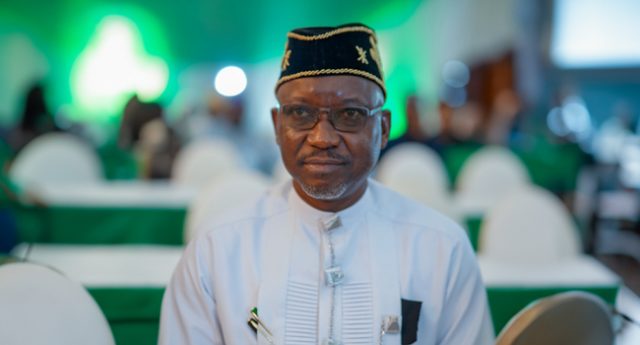
The Federal Government, on Tuesday, announced that the $700m Obiafu/Obrikom/Oben gas pipeline, popularly called OB3, would be completed in March 2024, a project that commenced in 2016.
It announced this at the ongoing 7th Nigeria International Energy Summit in Abuja, where President Bola Tinubu also provided some explanations on why his government had to remove petrol subsidy despite how difficult it was.
Providing a couple of status reports on Nigeria’s gas sector, during his remarks at the summit, the Minister of State for Petroleum Resources, Gas, Ekperikpe Ekpo, described the OB3 gas pipeline as one of the biggest gas transmission systems in both Nigeria and Africa.
“Another milestone in our journey towards a gas-focused economy is the Ajaokuta-Kaduna-Kano pipeline. I am pleased to report that significant progress has been made in the construction of this critical infrastructure project, and we are on track to ensure its completion and commissioning as scheduled.
“The Obiafu/Obrikom/Oben (OB3) is a vital piece of gas infrastructure for the supply of feedstock to the AKK pipeline. This pipeline is among the biggest gas transmission systems in both Nigeria and Africa.
“I am highly elated to announce that going by the contractor estimates, the OB3 pipeline will be completed by March 2024 and the 42” 127km pipeline will supply 2BCF (two billion standard cubic feet) per day,” the minister stated.
Ekpo noted that upon completion, the pipeline would supply the AKK pipeline with gas from the three fields of Obiafu, Obrikom and Oben, as he commended NNPCL for its steadfastness in ensuring a timely completion of the OB3 pipeline project.
The estimated cost for constructing the OB3 gas pipeline is $700m. The project started sometime in 2016, and is also known as the East-West Pipeline.
It connects the Obiafu-Obrikom gas plant near Omuku, Rivers State, to Oben, Edo State and is to transport two billion standard cubic feet of gas per day.
Subsidy removal
Representing Tinubu, before declaring the summit open, the Minister of Information and National Orientation, Mohammed Idris, stated that the petroleum subsidy had over the years strained Nigeria’s economic resources.
This, he said, led to inefficiencies and, most importantly, “hindering our ability to invest in critical areas of energy security.”
Tinubu, whose speech was read by the minister, said, “By removing the subsidy, we are creating a more transparent and accountable energy sector. The funds that were previously allocated to subsidising petroleum products are now redirected towards developing and upgrading our energy and other social infrastructure.
“Furthermore, the removal of the subsidy has encouraged further private sector participation in the energy industry with potential of attracting more local and international investors, fostering innovation and competition that will drive down costs and improve the overall efficiency of our energy sector.
“I am acutely aware of the immediate impact this decision may have had on our citizens, especially those with lower incomes. Therefore, in parallel with the subsidy removal, my administration is committed to implementing social intervention programmes to mitigate the short-term effects on vulnerable populations.”
He said the programmes would ensure that the burden of the subsidy removal was shared equitably and that the most vulnerable persons were protected.
“The decision to remove the petroleum subsidy is not an easy one, but it is a necessary one for the long-term energy security and economic prosperity of our beloved nation.
“I call upon all stakeholders, including industry experts, policymakers, and the general public, to engage in constructive dialogue and collaboration as we navigate these challenging but transformative times,” the President stated.
Tinubu had declared on May 29, 2023, that fuel subsidy was gone, during his inaugural speech. This was implemented the next day by NNPCL, the sole importer of petrol into Nigeria.
END

Be the first to comment